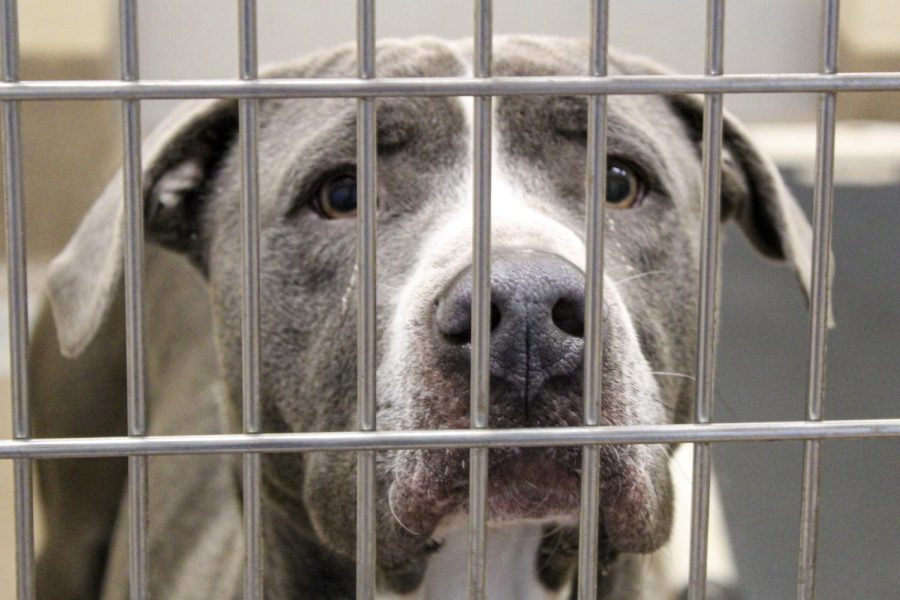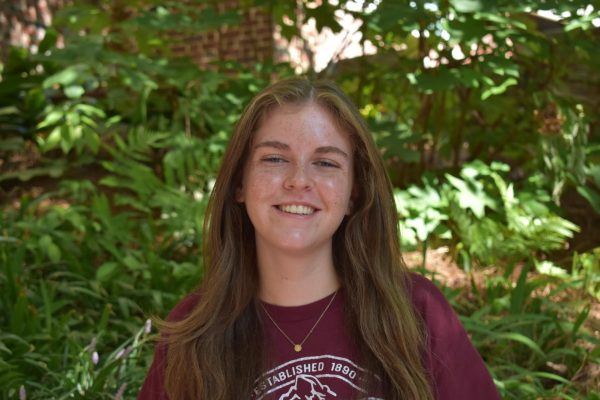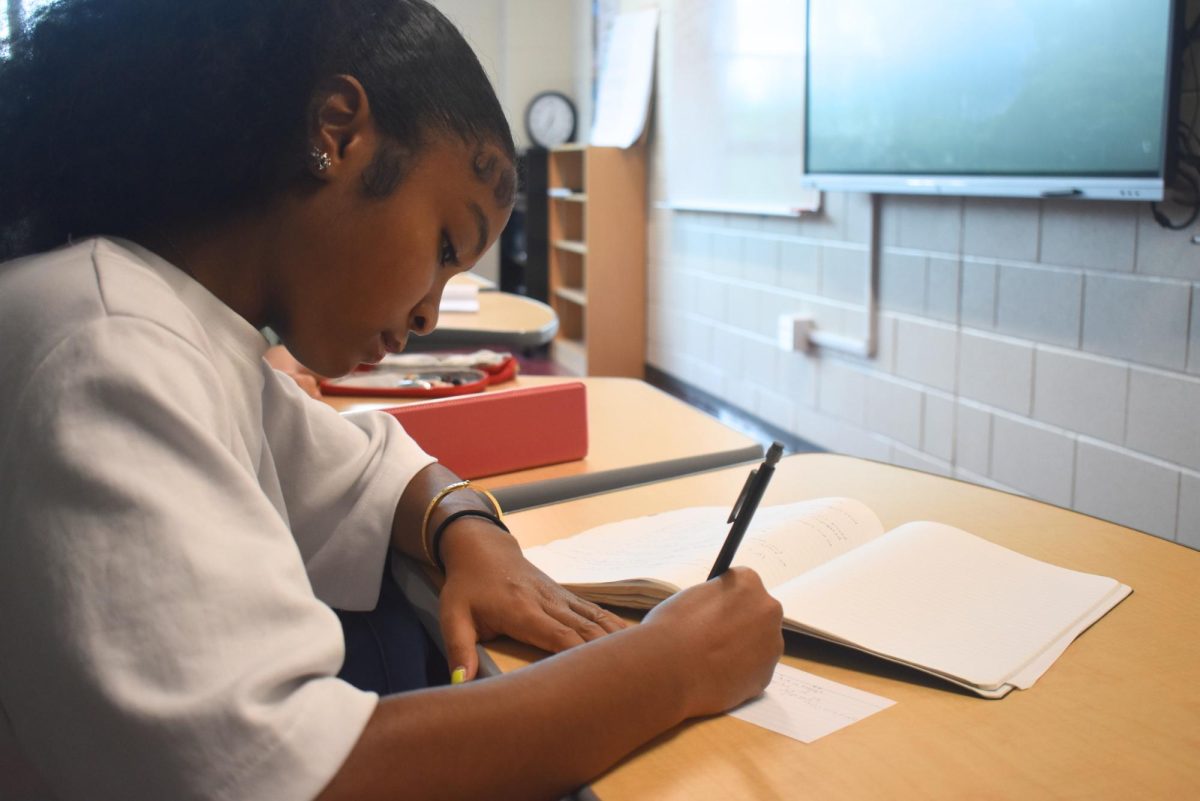Low adoption rates for animal shelters pilot urgency
In light of the recent urgency for adoptions, community members have rescued 554 animals over seven days.
March 8, 2023
A recent call for emergency adoptions has brought long lines to enter DeKalb County Animal Services.
DeKalb Animal Services released a recent plea for a reduction of 593 dogs in containment by 150 at the end of January. By Feb. 1, between DeKalb, Fulton, Community Assistance Center and LifeLine Midtown, 554 dogs were adopted over seven days.
“I think that when it comes down to it, people in the city of Atlanta love pets, and they want to save lives,” Tiki Artist, LifeLine Animal Projects spokesperson, said. “When we told them that we were running out of options people just decided, ‘I’ve got to make a really serious choice here, and I am going to go out and do what I can to support this organization and to bring these deserving pets home.’”
After hearing about the urgency for adoptions, community members, such as James Head, met the opening hours of DeKalb County Animal Services with lines out the door.
“Just given the nature of how it’s [the need for adoptions] been for the past few days it puts a starpoint on it,” Head said. “I grew up adopting dogs; I always thought that was important. It’s a good story about giving second chances.”
Financial stress for the community preceding the pandemic contributed to the high capacity rates, while the canine flu swept across Georgia causing alarming infection rates at local shelters.
“As far as homes that didn’t have any pets, we were still encouraging them to come in to adopt and foster animals,” Artist said. “We did lose a lot of momentum during that time because we were caring for so many animals at one time. That on top of the fact that we had lost so many adoptions and adoption numbers were down; it was a really difficult time.”
According to Artist, prior to the outbreak of canine flu, adoption rates were down 31%, resulting in the overcrowding of shelters. Chloe Arrington, Fulton County Animal Services Social Media Coordinator, recognizes these trends on a national scale.
“With adoptions being down over the last year nationwide, the sheer amount of animals in our care has meant long days, people wearing multiple hats do get the day to day jobs done and animals unfortunately staying in our care for far too long,” Arrington said.
The canine flu was a contributing factor in space limitation. This respiratory disease is a type A influenza that spreads through contaminated surfaces, coughing and sneezing. And as a result, shelters such as Fulton and DeKalb County Animal Services have implemented quarantine restrictions throughout their shelters.
“The biggest impact was that adoptions were made difficult as animals that left the building needed to be quarantined for as long as 28 days from any other dogs in the home or community,” Arrington said. “This was obviously a large hurdle for adopters with another dog at home. Another hard piece was the unexpected cost of medication for the dogs. All of this happening over Christmas and the new year was not ideal either.”
Symptoms, such as coughing, sneezing, feeling lethargic and runny eyes and noses led volunteers to dedicate hours to supplying the dogs antibiotics. Although cases are rarely fatal, the development of pneumonia can be lethal in an animal. Artist said close proximity also made it difficult to contain canine flu within shelters, contributing to the contagious spread.
“When we were dealing with canine flu we had a lot of sick animals,” Artist said. “And because of the fact that we were trying to prevent cross contamination we had to open this new shelter for new dogs that were coming in. Also, we had to go into a crisis mode again, offering personal protective equipment to visitors and guests that were coming in because it was very contagious.”
These overflowing capacity rates created further obstacles for Fulton and DeKalb shelters since they are managed by LifeLine Animal Project, a nonprofit focused on ending the euthanization of animals. Artist remarks on the difficult decision they were forced to consider for over 100 dogs.
“We had been at critical capacity for over a year,” Artist said. “We put out an urgent plea to the community, and we just said ‘hey, we are facing some really difficult choices now, and if we don’t find enough homes for these animals, we are going to have to start euthanizing for space which is something that we don’t believe in doing.”
Throughout 2022, LifeLine Animal Project has worked to provide free adoption opportunities and cost reductions in an attempt to encourage more residents to adopt. Despite these efforts, the main factor for the urgency of adoptions was financial challenges customers face following the pandemic, which caused adoption rates to fall.
“We are still struggling with higher than ideal numbers in our buildings,” Arrington said. “We are hoping that as we move further from the changes everyone experienced through COVID and people’s routines are back to ‘normal,’ that adoptions may increase again. However, with the world-wide economic situation, we understand that people may not be in a financial position to bring home a pet.”
Artist says financial distress was the primary reason why adoptions were down at such low rates.
“We think that after the pandemic people were suffering financially,” Artist said. “They were facing a lot of economic hardship. When you’re forced to decide on putting food on the table or having a pet in the home, sometimes, you have to make tough decisions about letting that family pet go. We weren’t necessarily seeing pets coming in [the shelter], but people were just not adopting.”
As local shelters continue to maintain intake capacity with 312 dogs currently located at DeKalb, they look to the community for their future. In February, free adoptions were offered in appreciation for the community and to incentivize them to not lose the momentum of these recent adoption rates.
“We’re hoping that now [the community] knows euthanization is a real possibility when we run out of options, and they’ll continue to support us in the way that they have this past month,” Artist said. “I’m hoping that they don’t forget about us and about all the animals here.”







